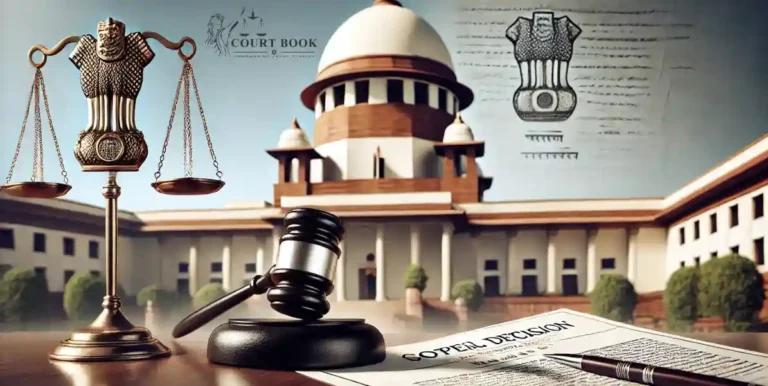In a significant ruling on February 27, the Supreme Court clarified that the provisions of the Code of Criminal Procedure (now Bharatiya Nagarik Suraksha Sanhita - BNSS) concerning the rights of accused persons extend to arrests made under both the Goods and Services Tax (GST) Act and the Customs Act. This ruling reinforces due process and legal safeguards for individuals apprehended under these laws.
The Supreme Court stated that the principles established in the Arvind Kejriwal case regarding arrests under the Prevention of Money Laundering Act (PMLA) also apply to arrests under the GST and Customs Acts. The Court highlighted the similarity between Section 19(1) of the PMLA and Section 104 of the Customs Act, both of which pertain to arrest powers. This precedent ensures that arrests must be based on 'reasons to believe', backed by substantial evidence rather than mere suspicion.
Furthermore, the Court ruled that circulars issued by the GST department regarding arrests must be strictly followed, ensuring procedural fairness and preventing arbitrary detentions. It also rejected the argument that customs officers should be treated as police officers.
A major takeaway from the verdict is that anticipatory bail is applicable to cases under the GST Act and the Customs Act. This means that individuals fearing arrest can seek legal protection even without an FIR being filed against them.
Read Also:- Centre Opposes Life-Ban on Convicted Politicians, Asserts It Falls Under Parliamentary Domain
Chief Justice Sanjiv Khanna emphasized:
"We have commented on the basis of data that there were allegations of force and coercion in the payment of taxes. We have said that there may be some merit in it. Wherever a person is disposed to pay, he can go to the writ court and get an order. And the officers will have to be dealt with departmentally also. We have said that this cannot be permitted. This is contrary to the law. We have referred to the Nandini Satpathy case in that regard."
Observations on Coercion and Harassment by Tax Officials
The Supreme Court acknowledged concerns regarding coercion and harassment by tax officials. The bench, led by Chief Justice Sanjiv Khanna, Justices MM Sundresh, and Bela M Trivedi, addressed complaints regarding undue pressure on individuals to pay taxes under duress.
During the hearing, the Court noted:
- No private complaints can be filed under the GST Act.
- Arrests should not be based on mere suspicion; concrete, verifiable material must be present before an arrest is made.
- GST and Customs officers must have certifiable material before arresting an individual, and this material must be subject to judicial scrutiny.
- Parliament has made amendments impacting the Om Prakash v. Union of India (2011) ruling, but has not completely overruled it.
- Citizens should not be harassed due to legal ambiguities in arrest provisions.
The Supreme Court also highlighted concerns regarding ambiguity in Section 69 of the GST Act, which governs the power of arrest. The bench suggested that any interpretation of the law should aim to safeguard individual liberty rather than facilitate undue harassment.
Justice Bela M Trivedi, in a concurring judgment, emphasized the role of judicial review in upholding the constitutional rights of individuals subjected to arrests under GST and Customs laws. The Court clarified that while investigating officers have the power to arrest, they must exercise this authority within strict legal boundaries.
Chief Justice Khanna remarked:
"Sometimes we tend to believe that investigation cannot be completed until arrest. That is not the object of the legislation. It restricts the power of arrest."
He further noted the distinction between 'power to arrest' and 'necessity of arrest', stressing that arrest should not be the default response in every investigation.
The ruling came in response to a batch of 279 petitions challenging the penal provisions in the Customs Act, CGST/SGST Act, and other related laws. The Court heard arguments on the compatibility of these provisions with BNSS (formerly CrPC) and the Constitution.
The matter was reserved for judgment on May 16, 2024, and after thorough deliberation, the Court delivered its verdict on February 27, 2025.
Case Title: Radhika Agarwal v. Union of India and Ors., W.P.(Crl.) No. 336/2018 (and connected matters).















